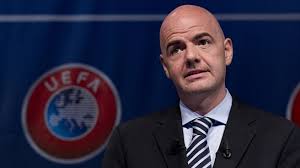By Andrew Warshaw
April 1 – UEFA and the international players’ union FIFPro have joined forces to try and re-inforce Fifa’s forthcoming worldwide ban on third party ownership. The two bodies are filing an official complaint with the European Commission about the practise in order to strengthen stopping outside investors partially owning transfer rights.
FIFA is phasing in the ban over a one-year period from May 1 and Uefa and FIFPro warned players “can be exposed to the whims of third parties” while “clubs can be driven into a vicious circle of debt and dependence”.
FIFPro said the complaint, if successful, will “ensure any potential loopholes and windows for circumvention of the new regulations put forth by FIFA are closed.”
TPO is particularly rife with agents and clubs in South America and parts of Europe including Spain and Portugal who claim that without it, some players would be unaffordable especially for smaller clubs. But critics say the practise encourages pure profit-making and drives money out of the game.
UEFA general Secretary Gianni Infantino (pictured) commented: “Third-party player ownership is a kind of modern slavery, where you see players belonging to investment funds, or other, generally unidentified, corporate entities.
“Clearly, this is not something that can be accepted by European law and this is precisely why we have now, together with FIFPro, asked the European Commission to investigate and to declare third-party ownership illegal.”
A few months ago, however, Spain and Portugal reportedly filed their own complaint to the European Commission challenging the ban.
The head of the Spanish League, Javier Tebas, has already publicly explained how his country relied on TPO as an integral part of the way the clubs did business.
And Portuguese football agent Jorge Mendes fiercely defended TPO in a recent interview with the BBC, dismissing plans to ban it as “illegal” due to restraint of trade and saying getting rid of it would be potentially “catastrophic” in terms of wrecking the competitive nature of the game.
Contact the writer of this story at moc.l1751313769labto1751313769ofdlr1751313769owedi1751313769sni@w1751313769ahsra1751313769w.wer1751313769dna1751313769

